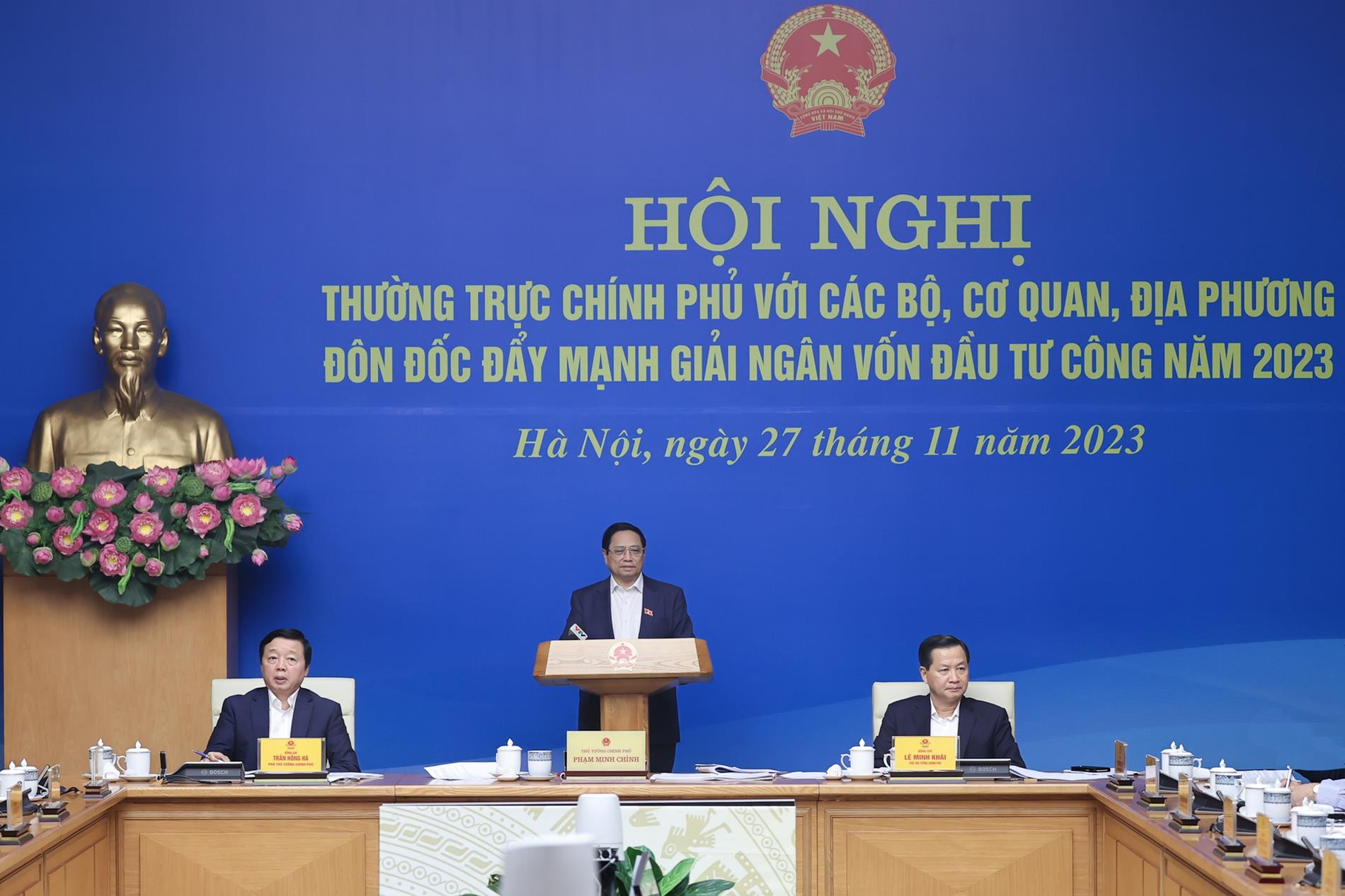HCMC – Public investment capital disbursements have totaled VND461 trillion in the year to date, representing 65.1% of the target assigned by the prime minister.
This amount is 6.77% (or VND122.6 trillion) higher than in the same period last year, the Ministry of Planning and Investment said, delivering a report at a Government conference on 2023 public investment disbursement held yesterday, November 27.
The public investment capital disbursement target set by the PM is VND708 trillion, meaning that VND247 trillion, or about 35% of the total, must be disbursed to meet they full-year goal. However, it is impossible to realize such a high disbursement rate in the rest of the year.
The ministries, agencies and localities that have achieved good public investment disbursement results include the Vietnam Development Bank with 100%, the Vietnam Journalists Association with 100%, the Vietnam Lawyers Association with 92.76%, the Office of the National Assembly with 83.61%, Binh Duong Province with 113.4%, Long An Province with 112.7%, Ba Ria-Vung Tau Province with 106.84%, Tien Giang Province with 101.42%, Dong Thap Province with 100.82%, and Haiphong City with 99.83%.
But the Ministry of Planning and Investment report said, as of now, 21 out of 52 ministries and central agencies, and 30 out of 63 centrally-governed cities and provinces have not fully disbursed the funds allocated by the prime minister, with a total amount of nearly VND16.2 trillion.
Forty-three ministries and central agencies, along with 28 centrally-governed cities and provinces, have disbursed funds below the national average. Their disbursement rate is about 44%, way below the national average of 65.1%. There are 15 ministries and central agencies disbursing less than 15%.
Prime Minister Pham Minh Chinh said at the conference that there is a lack of focus and centralization in planning and that frequent project adjustments remain common, leading to delays in capital disbursement.
He pointed out challenges in land clearance and land use planning, especially in determining land origin, setting land prices, and securing a public consensus on compensation and resettlement plans, which have led to delays in selecting contractors, signing contracts, and carrying out construction activities.
He criticized the ministries, agencies, and localities with low capital disbursement rates, saying they would have to conduct a thorough review, clarify reasons, identify collective and individual responsibilities, so that measures can be taken to improve the disbursement of public investment capital.









